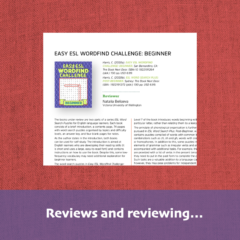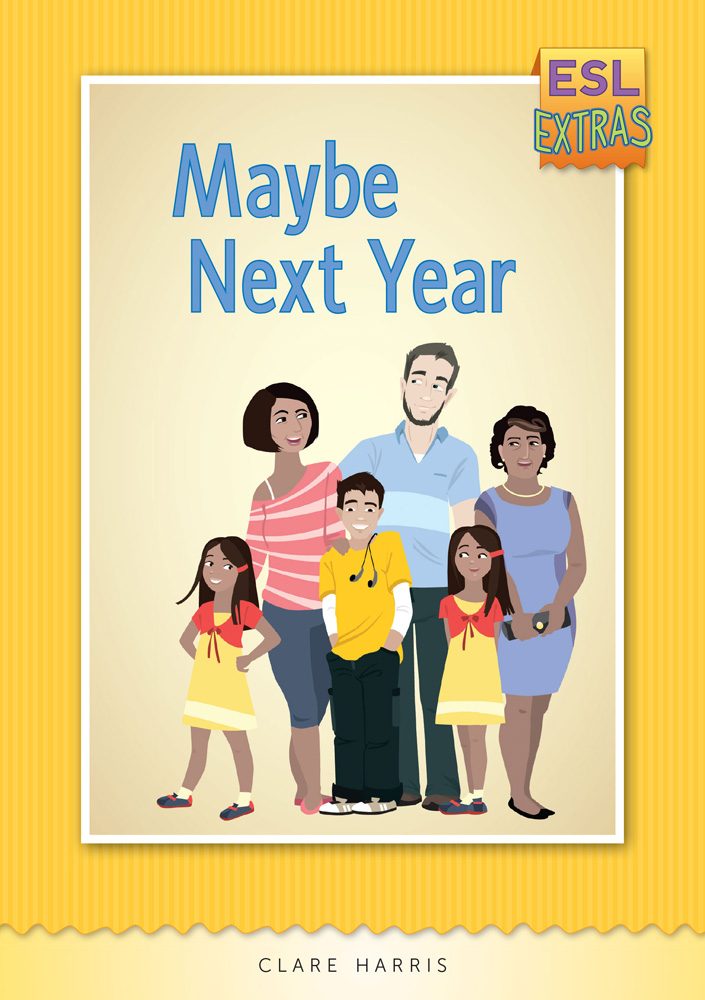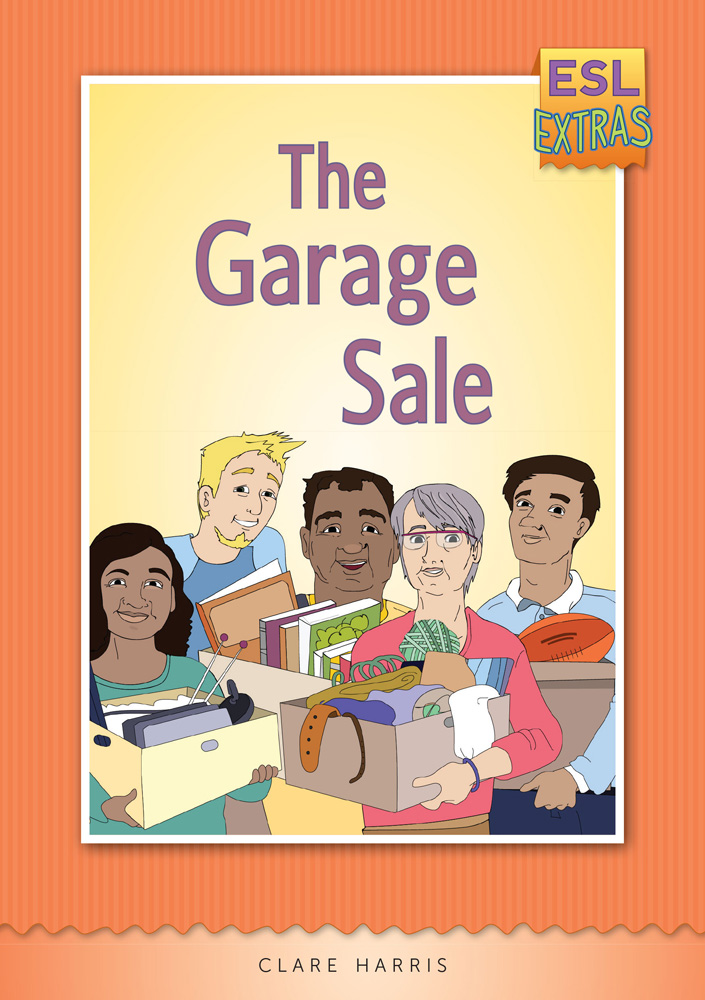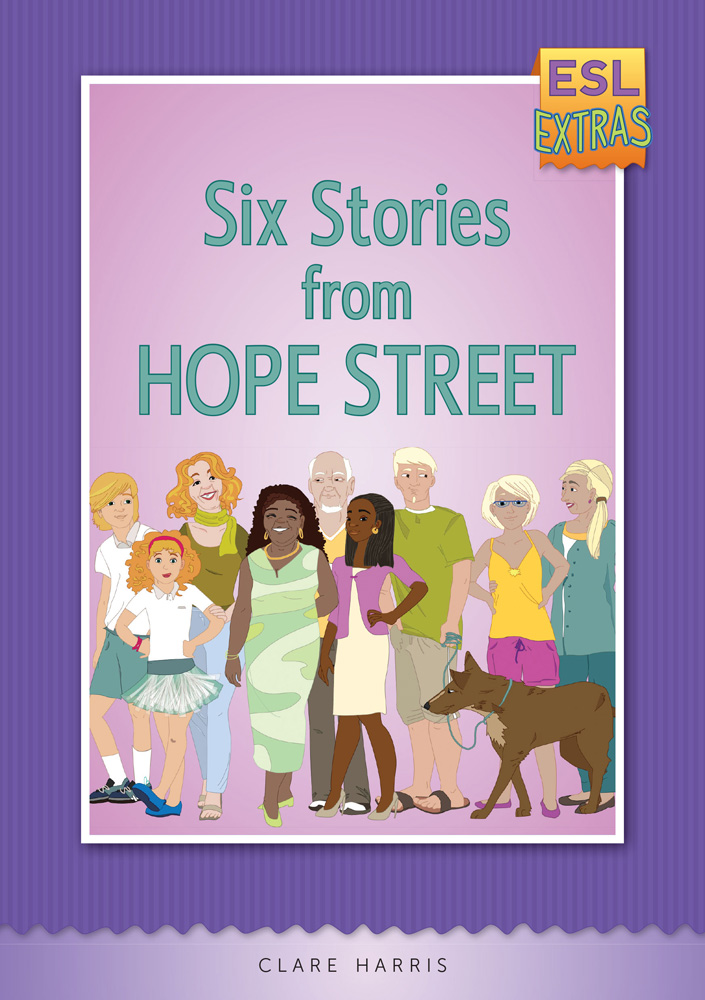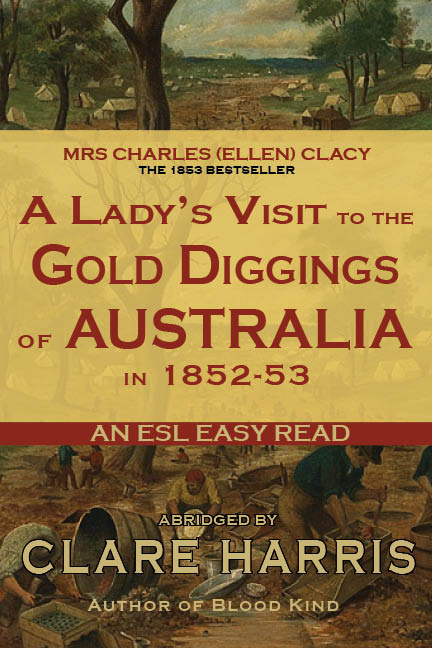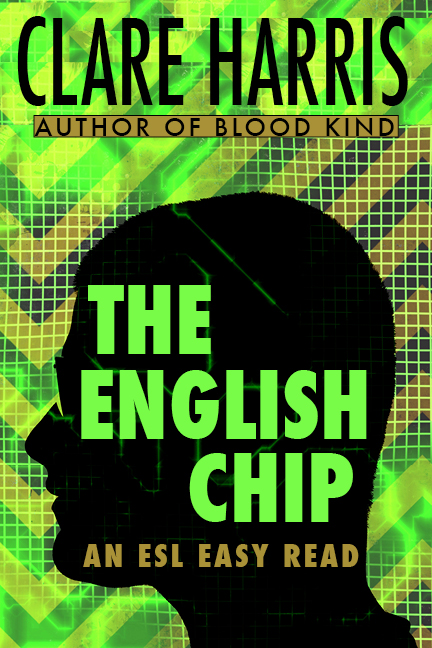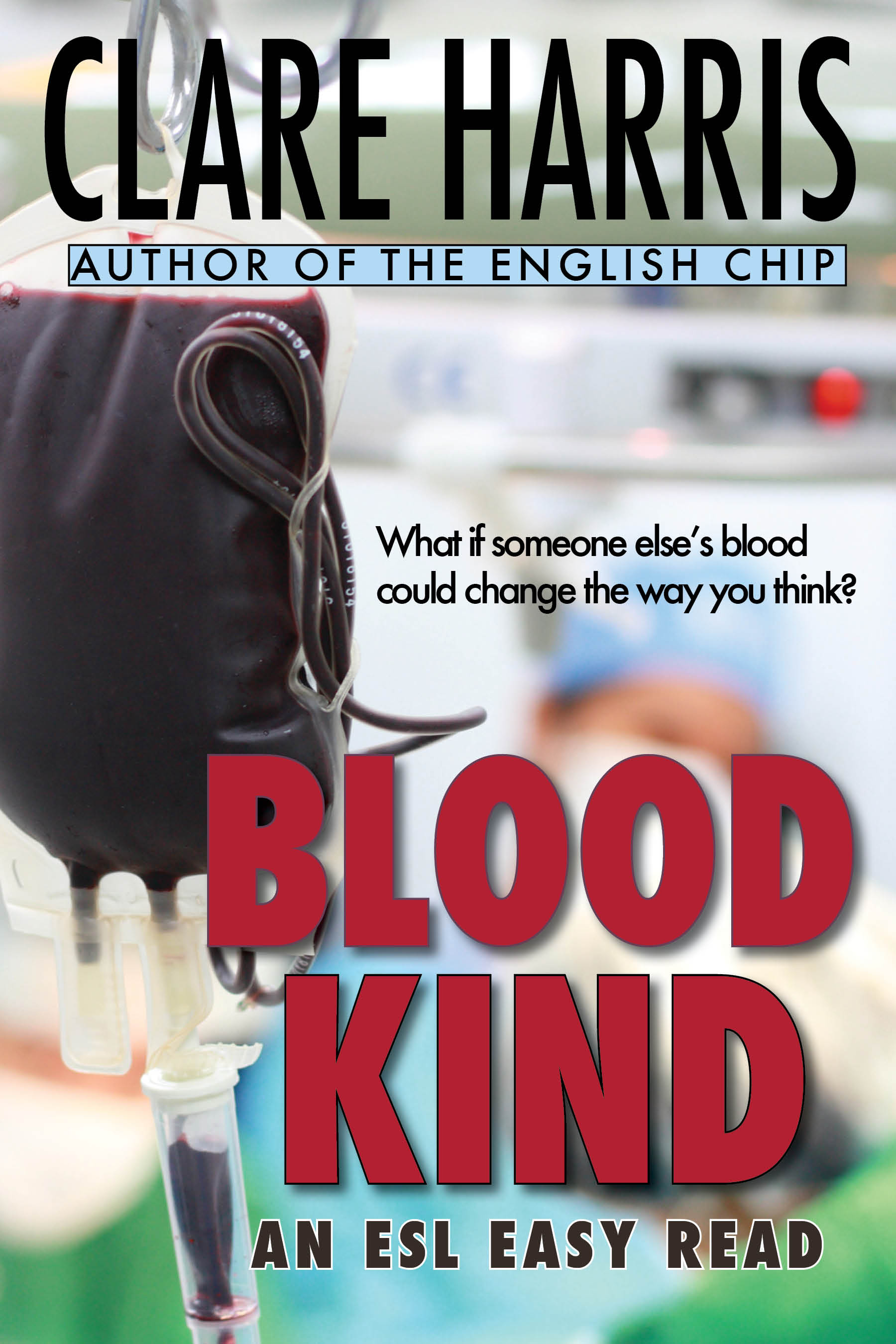Doing a happy dance over a review of two of my word search books in the TESOLANZ news. (That’s TESOL Aotearoa New Zealand, of course.) It’s a delightful review and so nice to have, but it also reminded me of just how invaluable the newsletters and journals from our professional bodies are – and how democratic! My word puzzle fun (Easy ESL Wordfind Challenge and ESL Word Search Plus) got as much space as far more serious books.
If you’re producing resources that are available in NZ, do get in touch with the reviews editor. I’m sure the same goes for all the equivalent professional bodies here in Australia.
If you’re still in the ‘thinking of writing resources’ stage, you could consider offering to write reviews. It’s an absolute skill, but also a great way to get some visibility (see this earlier blog post, with some links).
Helping learners write reviews
I’m thinking a lot about the review writing process, because my Book Club readers are almost ready. (Here’s a sneak preview of the draft covers!)
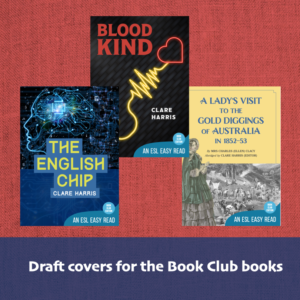
I’m thinking that the learning process will be to read and discuss, but perhaps also to consider writing a review. Reviews are no longer just the province of ‘experts’ – anyone can leave a review on Amazon, or Goodreads.
If you’ve done this with learners, I’d love to hear from you. It’s quite a skill – to be able to share the reading experience in a way that’s meaningful, beyond ‘Great book! Recommended!’ and while still working at intermediate level…
I see there are plenty of downloadable templates online, from sites like ISLCollective. There are also some good articles for teachers, like this one from Literacy Ideas. I also liked the videos for learners that help them learners prepare for review writing in the Cambridge B2 (and up) exams, like this one from ESLeschool.
So hoping to hear from you if you have suggestions or experiences to share. Or perhaps you can suggest other ways you’d challenge learners who’ve been doing some personal extensive reading, or else book club reading and discussion?
Finally, an extract from the review!
Thanks to TESOLANZ, book reviews editor Elizaveta Tarasova, and reviewer Natalia Beliaeva! Your hard work is appreciated.
“The instructions are easy to follow, and the puzzles are fun for the learners to complete. Based on my personal experience of using the book in class, beginner learners need little to no guidance to complete the puzzles. “
“Overall, the books under review are valuable training toolkits aimed at developing phonics and vocabulary, enhancing the ability to recognise graphemes typed in a variety of fonts, as well as larger units of sounds such as rhymes and letter combinations, which are essential components of literacy development (Adams 1990). The material presented is valuable for teachers and engaging for learners, and can be recommended as a self-study book, though ESL Word Search Plus: Post-Beginner may require additional support for a learner outside the classroom.”

